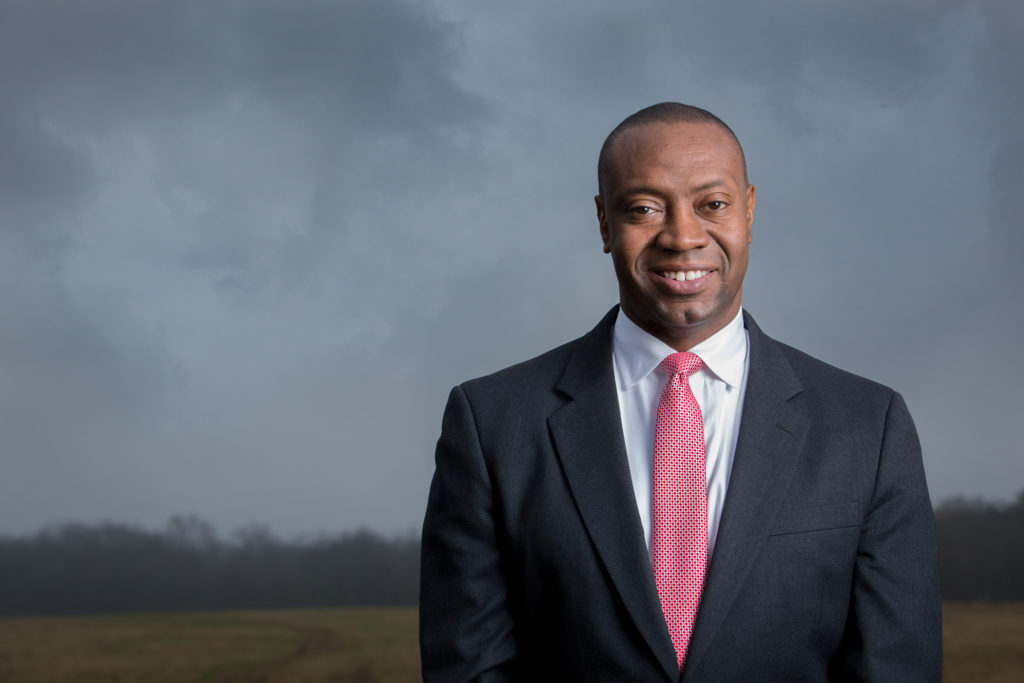
As the Georgia Athletic Association Distinguished Professor and director of the atmospheric sciences program at the University of Georgia, chair of the NASA Earth Science Advisory Committee, and former president of the American Meteorological Society, Shepherd’s prowess as a researcher and leader are well known within the scientific community. Yet he also devotes an exceptional amount of energy to connecting with public audiences by writing a regular column for Forbes, hosting a Weather Channel podcast, engaging with his local community, and more.
“Dr. Shepherd is not only a world-class scientist, community servant, and role model, but he is an outstanding communicator,” wrote Jack Kaye, associate director for research in NASA’s Earth Science Division, in the award nomination letter. “Few scientists put as much time and effort into communicating with a broad set of audiences as Dr. Shepherd.”
As a senior contributor to Forbes, Shepherd writes columns on weather and climate, and commenting on the scientific enterprise as a whole. Recent subjects that he has tackled include a potential decline in the quality of weather forecasts due to a global helium shortage, proposed budget cuts to Alaska’s state university system, and the obstacles women face with regard to pursuing science and math degrees and entering the STEM workforce. Page-view data show that many of these articles reach hundreds of thousands of readers.
In 2000, writing for a younger audience, Shepherd co-authored “Dr. Fred’s Weather Watch,” a “how-to book for junior meteorologists.” In addition to fun facts and simple explanations of meteorological concepts, the book offers children guidance on building a homemade weather station.
Shepherd also hosts the weekly Weather Geeks podcast, which The Weather Channel founded in 2018. Prior to the podcast’s launch, he had hosted a TV show on the network for five years. Along with guests who work in politics, academia and the private sector, Shepherd delivers stories related to weather and the science behind it. He maintains a dialogue with the podcast’s more than 17,000 Twitter followers and with the more than 47,000 followers of his own Twitter account.
A TED Talk on what shapes people’s perceptions and misperceptions about science that Shepherd recorded in 2018 has received more than 2 million views, and he is a regular guest on mainstream broadcast outlets, such as CNN and CBS. At the community level in Georgia, Shepherd speaks at meetings of various civic organizations and serves on an advisory committee for Gwinnett County Public Schools, the largest school system in the state.
From 2012 to 2015, Shepherd contributed scientific guidance to What We Know, a AAAS initiative aimed at communicating the realities, risks and responses related to climate change. He is receiving the Mani L. Bhaumik Award for Public Engagement with Science after being honored with the Climate Communication Prize from the American Geophysical Union in 2019.
The AAAS Mani L. Bhaumik Award for Public Engagement with Science, established in 1987, recognizes scientists and engineers who demonstrate excellence in their contribution to public engagement with science. In 2019, the award was endowed by quantum physicist Mani L. Bhaumik.
Known for technological advances that led to the development of Lasik eye surgery, Bhaumik seeks to elevate the recognition of scientists for their exceptional efforts to communicate science in ways that inform and engage the public. The prize consists of a $5,000 honorarium, a commemorative plaque and complimentary registration and travel to the AAAS Annual Meeting.
Shepherd will receive the award during the 186th AAAS Annual Meeting in Seattle, Wash., on Feb. 14, 2020. Because his efforts to limit his personal carbon footprint include avoiding airplane trips, Shepherd will accept the award remotely.
